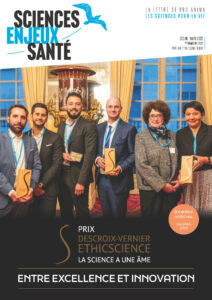New results confirm the excellent level of prediction of the VALITOX® programme
19 June 2009
VALITOX®, the new alternative to animal testing financed by a number of associations (30 millions d’Amis, SNDA, Fondation Bourdon, Fondation Brigitte Bardot, SPA, LSCV) is about to be submitted to the ECVAM for acceptance into the pre-validation process. If selected, this will consist of a multi-centred study undertaken by three independent laboratories on a small range of substances. We remind you that VALITOX® is intended to replace animal testing in the context of tests of acute toxicity. Itt is enrolled in the European ACuteTox programme, the results of which have not been very encouraging, despite four years of funding.
The latest stage in the development of the VALITOX® test, which took place between January and May 2009 at the NOVALEADS laboratory, consisted in ironing out difficulties encountered during earlier studies. The main issue has been to scale up the test to achieve the high outputs needed for its future application, in particular to meet the legal requirements of the REACH directive, and to resolve the problem of the so-called ‘false negatives’. A false negative is a toxic substance undetected by the test. The proportion of false negatives is thus an essential indicator for confidence in the test. To overcome these difficulties a new procedure, the DAP method, based on de-inhibiting of fluorescence has been perfected. The DAP method has simultaneously overcome the problem of false negatives and the scaling up of the test procedures for outputs compatible with the REACH requirements.
Finally, the NOVALEADS study has shown that in its present state the VALITOX® test predicts 82% of effects observed in humans, an unprecedented result for this type of alternative approach.
It should be noted that the results of the latest study have been accepted for announcement at the 7th world congress on alternative methods, to be held in Rome from the 30th August to the 3rd of September next. They are also to be published in the journal ALTEX (Alternatives to Animal Experiments), a sponsor of the congress.
Dr Christophe Furger
Director of Research and Innovation


